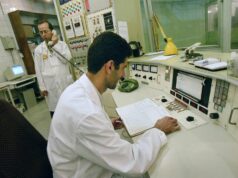Friendship With Oman Further Cemented By India

As per the bilateral pact signed between Oman and India, the Indian Navy has been granted access to the Duqm port in Oman. The port is located about 550 km south of the capital Muscat. In the special economic zone at Duqm, the Sebacic Oman, an Indo-Oman joint venture, is planning to set up Rs 86000 crore project, the largest sebacic acid plant in the Middle East.
India is among Oman’s top trading partners with bilateral trade reaching Rs 450,000 crore in 2018-19. It was the second largest importer of crude oil from Oman last year and more than 800,000 Indians live in Oman, sending back over Rs 225,000 crore annually in remittances.
Oman’s ambassador to India said that a bilateral maritime pact would have a far-reaching impact on stability in the Arabian Gulf. The agreement, signed on Tuesday, enables India to expand its footprint in the western Indian Ocean, the Arabian Gulf and East Africa.
“On the one hand it enables New Delhi to expand its economic and security footprint… on the other hand it will have a far reaching impact on stability in the Arabian Gulf and India’s interests in the region. India and Oman’s relationship has grown over the decades and become more significant at a time when global trade and food security are paramount which requires that neighbours join efforts to enhance security.” Said Ambassador Sheikh Hamad bin Saif Al-Rawahi while talking to the Arab News.
Oman’s initiative to strengthen cooperation with India during the recent visit of Foreign Minister Subrahmanyam Jaishankar to the sultanate could be seen as part of its efforts to diversify security partnerships, he added. India’s Foreign Ministry said that Jaishankar’s visit was “in pursuit of India’s objective of enhanced engagement with the Gulf region which is in India’s extended neighbourhood.”
Former ambassadors and foreign policy experts said the maritime pact would institutionalise long-standing bilateral cooperation.
“During Prime Minister Narendra Modi’s visit to Oman in 2018 they agreed to work closely on the Duqm facilities,” Anil Trigunayat told Arab News. “The Gulf countries are important for India’s overall security architecture, therefore developing closer ties with Oman is good for the overarching security of India.”
Anil Wadhwa, a former Indian ambassador to Oman, said the strategic significance of the agreement lay in the turnaround facility for the ship, allowing the Indian vessel room to manoeuvre.
Prof. Sujata Aishwarya, from the New Delhi-based Jamia Millia Islamia University, said India was asserting itself in a region it considered to be of great strategic interest in the same way that China was strengthening its maritime Silk Route through infrastructure projects and economic partnerships.



